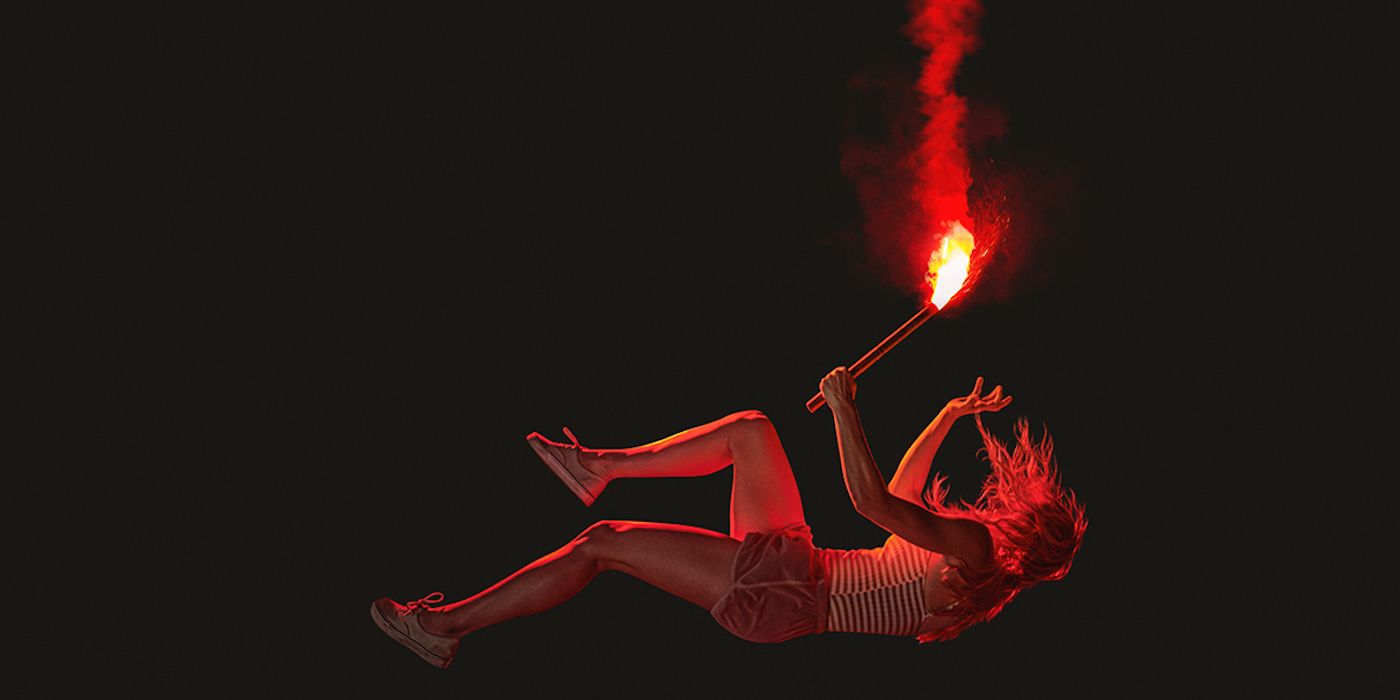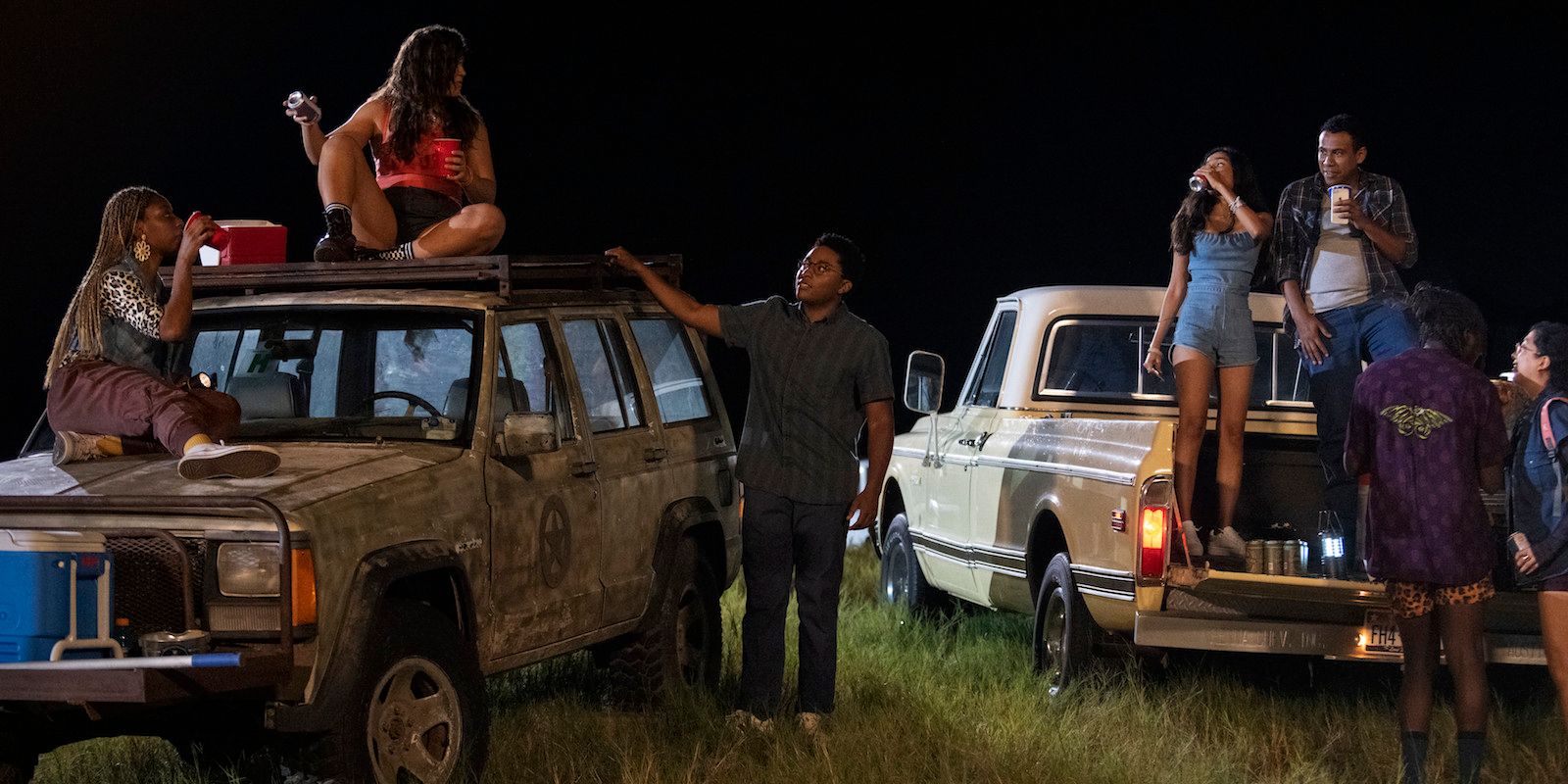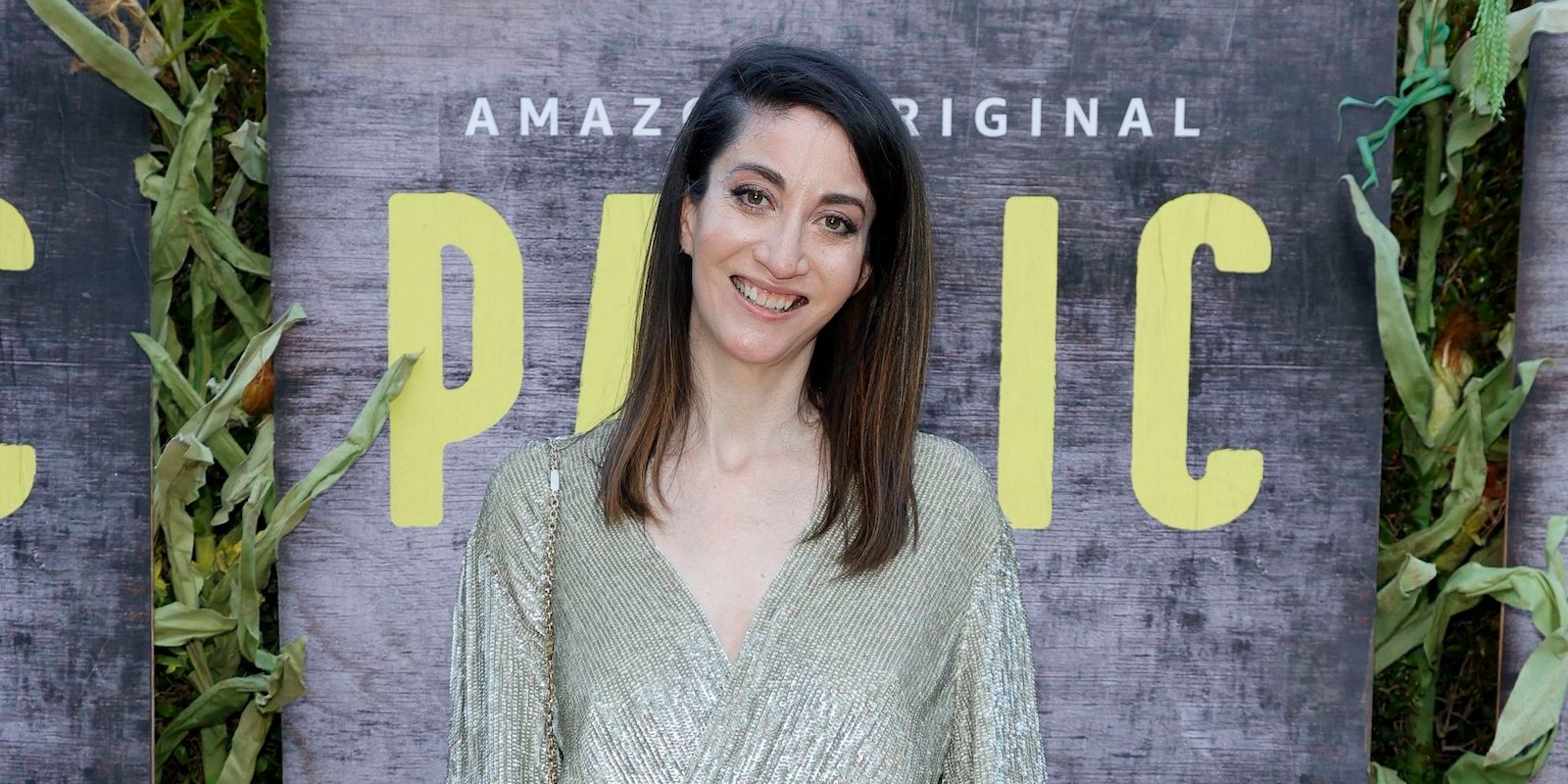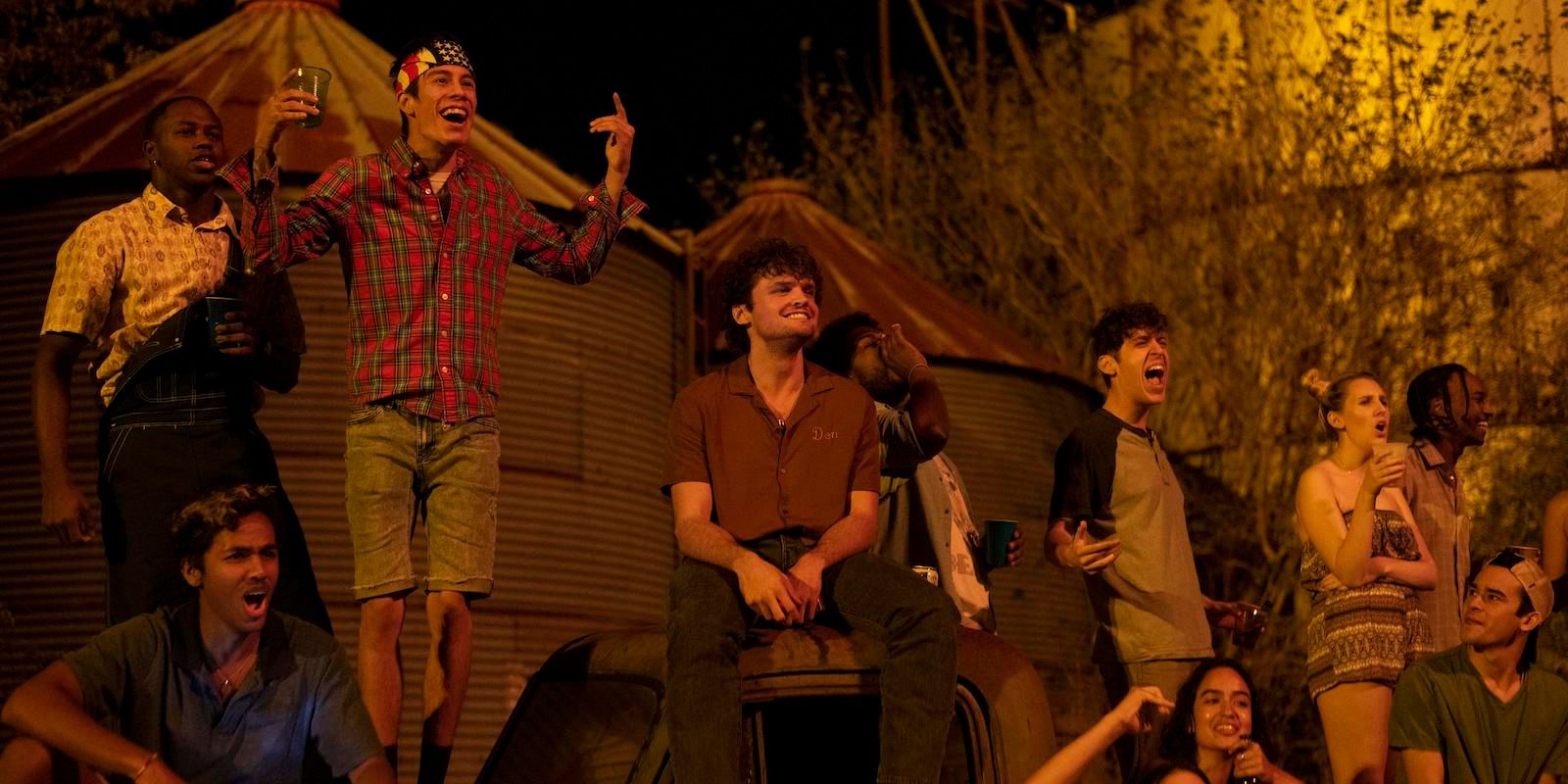Lauren Oliver's bestselling 2014 YA novel Panic introduced readers to the title game, in which graduating seniors of one small town compete every year. The game is all about facing your fears, and the challenges push contestants to their limits, even as their desire to win the life-changing prize money drives their participation. Oliver's novel is now an Amazon Prime Video series of the same name, for which she serves as creator, writer and executive producer. Panic is an addictive binge that is both an entertaining thriller and a commentary on heady issues like classism.
In an interview with CBR, Oliver discussed the story's roots in her personal journey, the challenges of translating her novel to the small screen, and how seeing Panic brought to life changed how she viewed the work.
CBR: How did you come up with the idea for the novel for Panic?
Lauren Oliver: Panic is kind of a very personal story to me. It's kind of an autobiography, in a way. It's pretty much like a literal translation, or transliteration, I'll say, of a psychological journey that I went on between, let's say, the ages of 16 and 26, including attempts to kind of break myself of fears in a way that was, at the time, very ingenuous and also dysfunctional, I would say. And so that kind of got then translated back into, when I was ready to write about it, the idea for this book, and my own personal journey kind of got split up between Heather and Dodge's arcs. But really, it was kind of a personal story.
And then some of the ideas for the challenges and whatever, those actually came from things that either we had done but largely a lot, even my sister, my older sister who was both a daredevil in some negative ways, but she and her friends used to do in high school, to my terror and with often disastrous effects.
Why did you decide to set the story in Texas?
So, we had originally filmed it in Upstate New York. I mean, one of the things is when I started to write the book, [the small-town setting of] Carp, it was originally in Oregon because I was living in Oregon at the time. And then I moved back to New York. And then when I was moving back to New York and started going to Upstate New York a lot and ultimately got a house there, then I was like, "Ah, I'll just make it Upstate New York, because I knew the area so much." But one of the things that's great about it is Carp -- again, just like an allegory -- Carp is a lot of places, especially in this country. I mean, Carp is all of us basically who don't live in a huge city or didn't grow up in a huge or wealthy environment, right?
And so we had filmed the original pilot way back I think in 2018 -- Is that possible? Maybe, yes -- and it was like we were cursed by a bad witch. There was tornadoes. There were thunderstorms. We got shut down. We only filmed half the pilot. So it was a never-again situation. So when we moved to Texas [...] I really wanted to bring in the Texas of it, because Texas, in particular -- I mean, all states have their own flavor -- but Texas in particular really has its own culture and flavor. So that ended up being a really fun opportunity to revisit some of the characters and their backstories and incorporate rodeo in an interesting way, and that's what we did.
But we did it hoping that it would be warm through the winter, and meanwhile, I was just sick. I mean, the poor cast. Every time we had to do a water shoot, there would be a historic cold front. And it would be every time, though. I was like, "How many historic cold fronts can you have within the same four-month period [Laughs]?" And it would be like 18 degrees.
You're a prolific author. Why was Panic the right book to turn into a series, in your mind?
Well, I think that I've always wanted that book to be a series either as a book series, or -- and this was perfect -- as a TV series because, to me, it always felt like the show is both about the game and it's not. And there was so much richness in how this game came about in this particular town, how the town itself tells a story to its young people. There were all these kind of dimensions that I didn't get to address in the book because it's short and that you're able to do in a series.
And I think that, again, the game only occurs in context. And because the game is a reflection of a story of desperation and hopelessness, it's a reflection of an inherited fear. And we need to understand where that comes from in order to look at how true it is and how untrue it is. And so that was why I think it's so good for a TV show because it allowed you to unfold the book like an origami kind of and see all of these different dimensions of the characters and the town that raised them, I would say, and the country and culture that raised them.
In addition to creating and executive producing the show, you wrote every episode. What was the process of translating what you wrote in the novel to script form? Was that a challenge?
Oh, I mean, it was enormous. But I will say I didn't read the book again, which was hilarious, because I actually literally made many of the same choices without having [reread the book] -- because I thought I remembered it really well -- and actually, when I finally did look back at a couple of the first chapters, I realized I'd misremembered a lot of it. But the really core things -- that's the thing, the core things -- were, obviously, I did remember, and those are the ones that you hope to leave intact. When you're revising, if you really have to revise a novel like a deep revise to a point of starting it over again, it's really important not to reread the other drafts because when you reread the other drafts, you get attached to things that don't need to come with you. And so instead, the idea is that you have to just leave all that writing behind, but the really key parts of it will come forward. So I kind of treated it in a similar way.
And, of course, when you're writing a TV show, it's so cool because you're writing onto the real world. There's real actors who have real interpretations. They're bringing different things to the audience. You're writing into budgets, right? There's a real budget. These steps have to become real. And some people might think that's restrictive. I think it's amazing because it is a form of restriction. It's a limitation, but not in a negative sense. It's a living limitation and so it's something that pushes back against your own imagination in this really fascinating way and generates, hopefully, good creative friction.
So, was it a challenge? Yes, it's the hardest thing I've ever done in my life. It was like I don't even know how I got through it. I did so many drafts. The studio was so patient with me. I literally probably have enough material for 90 episodes, all of them terrible that was like a documentary about everything I've ever cared about. But with so much support and help, we were able to get it to a place where I'm really proud. And I will say I'm so grateful to Amazon. I cannot think of one studio that would put a show of that budget in the hands of a first-time creator who was going to write every episode. I mean, it's really pretty extraordinary in terms of creative faith.
When you started collaborating with directors and actors and everyone else on the production, how did the project change for you? Did it make you see things you hadn't realized about the work?
Absolutely, yeah, 100 percent. And I think that it's nice because what ends up happening is that what becomes central is -- I know this sounds cheesy, because people don't use these words -- but a central seriousness or thematic orientation or how much people care about the material and how serious they are about it and in what ways, like, how much love people have, you end up choosing collaborators who really share a love in the same thing, but not necessarily because they're all seeing exactly the same thing. It's less important to me that people see the same thing than that they love it for the right reasons because, actually, what you hope in collaboration is that these new dimensions open. I mean, as soon as you're making a story for anybody, that's the point about a story: it's not yours anymore. It belongs to everybody, whoever picks it up, reads it as a book, looks at it and loves it. So you're trying to kind of open it as much as you can. But it all has to come from a same kind of central message or theme.
So, yeah, I absolutely saw things that I hadn't seen. I mean, all the way down to tiny things in the performances later on. Moments where a character wasn't even speaking, but we would see them reacting to something. And when you're writing, as a [novelist] or a screenwriter, as soon as somebody is kind of not on the page, they're not speaking, you're not picturing what they're doing. […] Once they're off the central schema of your mind, you're not paying attention to their reactions. But on screen, I would still be capturing those characters responding to central action. And it was amazing to see that. So in ways big and small, absolutely, I found new dimensions for the characters, for their motivations. I mean, Bishop actually has a story now. He's not just kind of a heroic foil, which is great. So, all of that came from the collaboration.
One of the things that's very of the moment in the show is the theme of classism. Why was that important for you to include?
It's funny because I feel as I've gotten older, when I've gotten more and more successful, I'm less and less poor, I have more and more hatred for rich people. [Laughs] And I don't know, I feel that I've had my own personal reaction, I think, against probably spending a lot of time in Hollywood and how proud people are there of their money. And there was something so distasteful and gross. And I guess some of that really just reflected […] just seeing the struggles and how badly we failed on so many fronts to generate opportunities equally at all.
I think a lot of that is just [...] it seems to have been something that increasingly became a kind of passion of mine. And to be fair, and so as I'm not trying to pretend that I'm something I'm not, it only became kind of a passion of mine as I was increasingly able to be in environments where everybody's really proud of being rich because they're kind of rich-people environments. And I think you see that play out even a couple of years ago, I could feel this kind of anger that was bubbling up and bubbling up, and then nobody was really paying attention to. And I think that has incredible validity.
I try to do balance because on the one hand, Panic both has to tell its young people that -- hopefully does tell them -- that their lives are worth more than a gamble, and at the same time, really tries hard not to at all disrespect the reality of what it means when you don't have money. Like, that's all good and well to say unless you're very poor. And so both of those realities are true. For some people, the road is a lot harder for no other reason than of where they were born. It just is a lot harder. And at the very least, the person who's living it has to believe -- if the rest of society doesn't believe we're all of equal value, because we don't have equal wealth -- but you have to believe it, right? You have even more responsibility to believe it as a person. So I guess I try to balance those two things. But it's something I feel really passionate about.
Written and created by Lauren Olivier, Panic stars Olivia Welch, Jessica Sula, Mike Faist, Ray Nicholson, Camron Jones, Enrique Murciano, Moira Kelly, Nancy McKeon and Rachel Bay Jones. It's now streaming on Amazon Prime Video.




